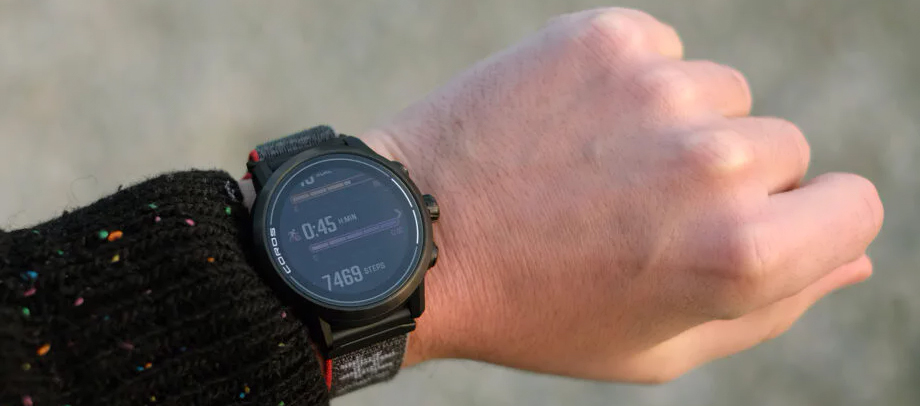
Technology has come a long way, and there are now countless tools and devices available to help you track your weight loss progress. Whether you’re looking for low-tech solutions or the most advanced options, there’s something out there for everyone. Here are some of the best tools and devices for tracking your weight loss progress:
- Food Diary App: A food diary app is a simple and effective way to track your calorie intake. Some popular apps include MyFitnessPal and LoseIt. These apps allow you to easily log your meals, snacks, and drinks, and see your nutritional information at a glance.
- Smart Scales: Smart scales can give you a more detailed look at your weight loss progress. These scales can track your body weight, body fat percentage, and other metrics, and sync the data with your phone or other devices. Some popular smart scales include Withings Body and Fitbit Aria.
- Fitness Tracker: A fitness tracker is a great way to track your exercise progress. These devices can track your steps, calories burned, and other important metrics, and help you set and reach fitness goals. Some popular fitness trackers include Fitbit, Apple Watch and Amazon Halo.
- Heart Rate Monitor: A heart rate monitor can help you track your progress and make sure you’re working out at the right intensity. These devices can be worn on your wrist or chest and can sync with other apps and devices to give you detailed information about your workouts. Some popular heart rate monitors include Garmin and Polar.
- Virtual Reality: Virtual reality can be an engaging and fun way to stay active. There are several virtual reality games and apps that can help you stay motivated and on track with your fitness goals. Some popular virtual reality games include Beat Saber, Fruit Ninja VR and Racket Fury: Table Tennis VR
- Smartphone apps: There are many smartphone apps available for free or for purchase that can help you track your progress, set reminders and monitor your activity levels. Some popular apps include MyPlate by Livestrong, Calory and 7 Minute Workout.
- Food Portion Scales: A food portion scale can help you accurately measure and track the portions of food you are consuming. This can help you stay within your calorie and nutritional goals. Some popular food portion scales include OXO Good Grips and Etekcity.
- Food Portion Sizers: Food portion sizers can help you control your portion sizes by providing you with specific measurements for serving sizes. These tools can come in the form of plates, cups or utensils. Some popular food portion sizers include Portion Control Plate and Portion Control Utensils.
By using these tools and devices, you can track your progress and stay motivated on your weight loss journey. Remember, it’s important to find the right tools that work best for you and your lifestyle. With the right technology and a positive attitude, you can achieve your weight loss goals.
As an Amazon Associate I earn from qualifying purchases.

Losing weight and getting in shape is a process that requires commitment, determination, and accountability. Holding yourself accountable for your calorie intake and exercise program is essential for achieving your weight loss goals. Here are some proven strategies for tracking your calorie intake and exercise program to help you stay accountable and on track.
- Keep a food diary: One of the best ways to hold yourself accountable for your calorie intake is to keep a food diary. Use a notebook, app or other tools to log everything you eat and drink, including portion sizes. This will help you identify patterns and areas where you can make changes to your diet.
- Use a fitness tracker: Wearing a fitness tracker or using a fitness app can help you hold yourself accountable for your exercise program. These tools can track your steps, calories burned, and other important metrics, and can help you set and reach fitness goals.
- Find an accountability partner: Having someone to share your journey with can make all the difference. Find a workout buddy, or join a weight loss group or a support group. Having someone to share your progress with and hold you accountable can help you stay motivated and on track.
- Set reminders: Set reminders on your phone or calendar to remind you to log your food intake and exercise. This way you can ensure that you are keeping track of your progress regularly.
- Track your progress: Take photos, measurements and keep track of your progress. This will help you see how far you’ve come, and will motivate you to keep going.
- reward yourself: Set up rewards for yourself when you reach certain milestones. Rewards can be small things like buying a new book, watching a movie or going out for a nice dinner.
By implementing these strategies, you can hold yourself accountable for your calorie intake and exercise program. Remember, weight loss is a journey, and it’s important to be patient and persistent in your efforts. With the right mindset and a willingness to track your progress, you can achieve your weight loss goals.

Weight loss is a journey that requires commitment and determination, and often times people find themselves stuck in a rut using the same tried-and-true methods. But to truly see results, it’s important to think outside the box and try new and unique weight loss tips. Here are a few unconventional weight loss strategies that may just give you the edge you need to shed those extra pounds.
-
Try Intermittent Fasting: Intermittent fasting is a method of eating that involves alternating periods of eating and fasting. This type of eating schedule can help you lose weight by reducing your overall calorie intake and increasing your insulin sensitivity.
-
Incorporate cold exposure: Cold exposure, such as taking cold showers or immersing yourself in cold water, can boost your metabolism and help you burn more calories. Cold exposure also helps to increase brown fat, a type of fat that helps to burn calories and generate heat.
-
Use visualization techniques: Visualization techniques, such as imagery and affirmations, can help you stay motivated and focused on your weight loss goals. Try visualizing yourself achieving your weight loss goals or repeating positive affirmations to yourself on a daily basis.
-
Practice mindfulness: Mindfulness can help you stay present and focused, and it can also help you make healthier food choices. Try incorporating mindfulness practices, such as meditation or yoga, into your daily routine to help you stay mindful and in control of your eating habits.
-
Incorporate more fermented foods: Fermented foods, such as kimchi, sauerkraut, and kefir, are rich in probiotics that can help improve your gut health. A healthy gut can lead to weight loss by reducing inflammation, improving digestion and nutrient absorption.
-
Experiment with different types of diets: There are many different types of diets out there, and what works for one person may not work for another. Instead of sticking to just one type of diet, try experimenting with different types of diets, such as the low-carb diet, the high-fat diet, or the paleo diet, to see which one works best for you.
-
Get a good night’s sleep: Getting enough sleep is crucial for weight loss. Not getting enough sleep can lead to weight gain and can disrupt your hormones. Aim for 7-8 hours of sleep each night to help your body recover, repair and rejuvenate.
By trying these unique and unconventional weight loss tips, you can break out of your weight loss rut and see real results. Remember, weight loss is a journey, and it’s important to be patient and persistent in your efforts. With the right mindset and a willingness to try new things, you can achieve your weight loss goals.
Here is a post about one of the most unique weight loss ideas I have seen: Blow the Weight Away

Getting enough sleep is essential for good health, but it can also play a significant role in weight loss. Research has shown that people who get inadequate sleep are more likely to be overweight or obese. Here’s why sleep is so important for weight loss:
-
Sleep helps regulate appetite. Lack of sleep can lead to an increase in appetite, particularly for high-calorie, sugary foods. This is because sleep deprivation disrupts the balance of hormones that regulate hunger and fullness.
-
Sleep boosts metabolism. Adequate sleep is essential for maintaining a healthy metabolism. When we don’t get enough sleep, our bodies may not be able to efficiently process glucose, which can lead to weight gain.
-
Sleep reduces stress. Chronic stress can lead to emotional eating and weight gain. Getting enough sleep can help reduce stress and improve overall mental well-being.
-
Sleep improves physical performance. Lack of sleep can affect physical performance, making it harder to stick to a workout routine. Getting enough sleep can help improve energy levels and make it easier to exercise.
So, how much sleep do you need to support weight loss? Most adults need 7-9 hours of sleep per night. If you’re having trouble getting enough sleep, try establishing a consistent sleep routine, avoiding screens before bedtime, and creating a relaxing bedtime routine.
By getting enough sleep, you can support your weight loss goals and improve your overall health. So, make sure to prioritize sleep as part of your weight loss journey.

Staying motivated on your weight loss journey can be challenging, but it’s essential for long-term success. Here are a few tips to help you stay motivated and on track:
- Set specific, achievable goals. Rather than resolving to “lose weight,” set specific goals that you can work towards, such as losing 10 pounds or running a 5K. Having a clear goal in mind can help you stay motivated and focused.
- Celebrate your successes. As you make progress towards your goals, take time to celebrate your achievements. This can be as simple as treating yourself to a new workout outfit or taking a day off to do something you enjoy.
- Find a support system. Having someone to motivate and encourage you can make a big difference in your success. Consider finding a workout buddy or joining a support group.
- Keep track of your progress. Seeing the progress you’ve made can be a powerful motivator. Consider keeping a journal to track your workouts, meals, and weight loss. You can also take progress photos to see the changes in your body.
- Don’t be too hard on yourself. Weight loss is a process and it takes time. Don’t get too discouraged if you have setbacks or if you don’t see immediate results. Remember that it’s okay to indulge occasionally and that balance is key.
- Find an activity you enjoy. Exercise doesn’t have to be a chore. Find an activity that you enjoy, whether it’s running, swimming, dancing, or something else, and make it a regular part of your routine.
- Remember your why. Keep your reasons for wanting to lose weight at the forefront of your mind. Whether it’s to improve your health, feel more confident, or have more energy, reminding yourself of your “why” can help keep you motivated.
By following these tips, you can stay motivated on your weight loss journey and achieve your goals.

-
Identify your triggers. What emotions or situations tend to lead you to emotional eating? Once you identify your triggers, you can take steps to address the underlying emotions rather than turning to food.
-
Plan ahead. Keep healthy snacks on hand, such as cut-up vegetables, fruit, or nuts, so that you have a healthy option when cravings strike.
-
Eat regular meals. Skipping meals or going too long without eating can lead to extreme hunger, which can trigger emotional eating. Make sure to eat regular, balanced meals to help keep hunger at bay.
-
Practice mindful eating. Pay attention to your food and your body’s hunger and fullness signals while eating, rather than eating mindlessly in front of the TV or computer.
-
Find healthy ways to cope with emotions. Instead of turning to food, find healthy ways to cope with emotions, such as talking to a friend, going for a walk, or writing in a journal.
-
Get enough sleep. Lack of sleep can lead to increased hunger and cravings, so make sure to get enough rest.
-
Seek support. If you are struggling with emotional eating, consider seeking the help of a therapist or joining a support group.
-
Avoid keeping unhealthy foods in the house. If you don’t have access to unhealthy foods, you can’t eat them.
-
Don’t label foods as “good” or “bad.” This can lead to a cycle of restriction and bingeing. Instead, focus on eating a variety of healthy foods in moderation.
-
Remember that it’s okay to indulge sometimes. It’s okay to indulge in your favorite treats occasionally, as long as it’s not a daily occurrence. Practice moderation and balance in your eating habits.
By following these tips, you can overcome emotional eating and take control of your eating habits.

Sometimes, the hardest part of weight loss is not knowing where to start. If you feel like you don’t know what to do but you know you have to do something, here are a few steps you can take:
- Start by identifying your goals. What do you hope to achieve with your weight loss journey? Do you want to lose a certain amount of weight, improve your overall health, or have more energy? Having a clear goal in mind can help you stay motivated and focused.
- Seek professional guidance. If you’re not sure where to start, consider seeking the help of a healthcare professional or registered dietitian. They can provide personalized advice and support to help you reach your goals.
- Make small, achievable changes. Rather than trying to overhaul your entire lifestyle at once, focus on making small, achievable changes. For example, try adding more vegetables to your diet, or going for a walk after dinner. These small changes can add up to big results over time.
- Find support. Weight loss can be a challenging journey, and having a supportive network can make a big difference. Consider finding a workout buddy, joining a support group, or enlisting the help of a coach or personal trainer.
- Don’t be too hard on yourself. It’s natural to make mistakes and have setbacks along the way. Remember that weight loss is a process and it takes time. Don’t get too discouraged if you don’t see immediate results, and try to focus on the positive changes you are making.
By taking these steps, you can get started on your weight loss journey and begin making positive changes that will lead to lasting results
While weight loss is an important aspect of overall health, it’s not the only factor to consider. Here are a few other ways to improve your health:
- Get enough sleep. Adequate sleep is essential for good health. Aim for 7-9 hours of sleep per night to help your body repair and regenerate.
- Eat a balanced diet. Choose a variety of whole, unprocessed foods to ensure that you are getting all the nutrients your body needs. This includes plenty of fruits and vegetables, whole grains, lean proteins, and healthy fats.
- Stay hydrated. Drinking enough water is essential for proper body function. Aim for at least 8 cups of water per day, and more if you are active or in a hot environment.
- Exercise regularly. Regular physical activity has numerous health benefits, including improving heart health, reducing the risk of chronic diseases, and boosting mood and energy levels. Aim for at least 30 minutes of moderate-intensity exercise, such as brisk walking, on most days of the week.
- Practice stress management. Chronic stress can have negative effects on your physical and mental health. Find ways to manage stress, such as through relaxation techniques, regular exercise, or seeking support from friends and family.
- Get regular check-ups. Regular check-ups with a healthcare provider can help catch potential health issues early on and ensure that you are maintaining good overall health.

By focusing on these factors, you can improve your overall health and well-being beyond just weight loss.

Maintaining a healthy weight is all about finding a balance between calorie intake and calorie expenditure. Snacking can be an important part of this equation, as long as you choose the right foods. Here are ten tasty and healthy snack ideas to help you stay on track with your weight loss goals:
-
Raw vegetables with hummus or guacamole. This classic snack is low in calories and high in fiber, making it a great choice for weight loss. Try carrot sticks, bell pepper slices, or cherry tomatoes.
-
Greek yogurt with berries. Greek yogurt is a great source of protein, which can help keep you feeling full and satisfied. Add some fresh or frozen berries for a burst of flavor and antioxidants.
-
Hard-boiled eggs. Eggs are a great source of protein and healthy fats, making them a satisfying snack option.
-
Apple slices with almond butter. Apples are a low-calorie, high-fiber fruit, and almond butter provides a boost of protein and healthy fats.
-
Nuts and seeds. Nuts and seeds are packed with nutrients and make a convenient snack on the go. Just be sure to watch your portion sizes, as they can be high in calories.
-
Edamame. Edamame is a type of soybean that is often served as a snack in Japanese restaurants. It’s high in protein and fiber, making it a satisfying choice.
-
Air-popped popcorn. Popcorn can be a healthy snack as long as you skip the butter and salt. Try air-popping your own at home and adding your own seasoning, like chili powder or nutritional yeast.
-
Rice cakes with avocado. Rice cakes are a low-calorie, low-fat option, and avocado adds a creamy texture and healthy fats.
-
Turkey roll-ups. Thinly slice some turkey and roll it up with a slice of cheese for a protein-packed snack.
-
Chocolate protein balls. Satisfy your sweet tooth with these tasty treats made from protein powder, nut butter, and cocoa powder.
Weight loss resolutions are a common theme at the start of a new year, but they can actually be counter-productive and lead to feelings of failure and disappointment. Here are a few reasons why weight loss resolutions may not be the best idea:
- They often involve drastic changes. Losing weight often requires making significant changes to your diet and exercise habits, which can be difficult to sustain over the long term. When these changes are not realistic or sustainable, it’s easy to become frustrated and give up.
- They can lead to an all-or-nothing mindset. When we make resolutions, we often have an “all-or-nothing” mentality, which means that we see any deviation from our plan as a failure. This can lead to feelings of guilt and shame, which can be counterproductive to weight loss.
- They can be too vague. Resolutions like “lose weight” or “get fit” are too vague to be meaningful. Without a specific plan or goals, it’s difficult to track progress and see results.
- They don’t address the root causes of weight gain. Weight gain is often the result of complex factors, such as stress, emotional eating, and lack of sleep. Focusing solely on weight loss ignores these underlying issues and may not be effective in the long term.
- They can lead to an unhealthy obsession with weight. When weight loss becomes the focus of our lives, it can lead to an unhealthy obsession with the scale and an unhealthy relationship with food.
Instead of making weight loss resolutions, consider making small, sustainable changes to your lifestyle. Focus on eating nutritious foods, getting regular exercise, and finding ways to manage stress. These changes can lead to lasting weight loss and improved overall health.